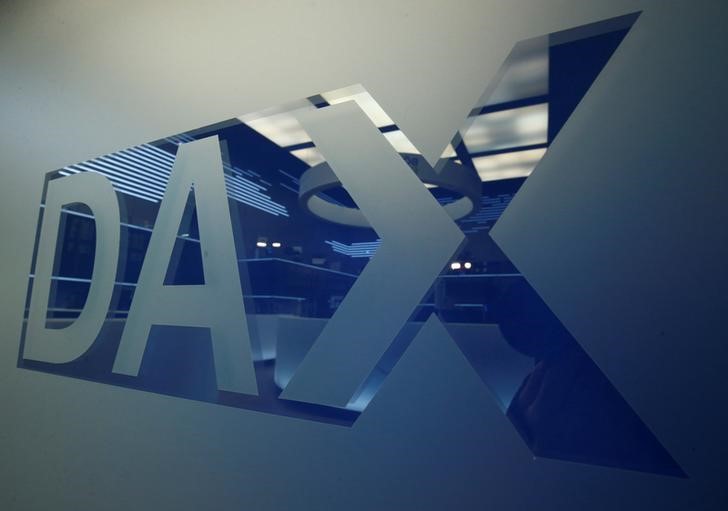US stock futures inch lower after Wall St marks fresh records on tech gains
Investing.com -- DAX Q1 earnings declined 8% year-over-year despite surpassing consensus estimates by 5%, according to Deutsche Bank (ETR:DBKGn) Research.
The decline, according to Deutsche Bank analysts, was influenced by the automotive sector. Excluding the automotive sector, earnings increased by 4%, exceeding expectations by 8%.
The strongest earnings growth was observed in the energy, technology and industrial sectors. Quarter-on-quarter, earnings increased slightly, by 1%, with chemicals showing particular strength.
Deutsche Bank Research notes that DAX earnings growth trailed the STOXX 600, largely due to the significant weighting of the automotive sector.
However, excluding the automotive sector, the DAX outperformed the STOXX 600 in earnings growth.
While both indices have seen downward revisions in 2025 estimates, STOXX 600 estimates have recently stabilized, while DAX earnings estimates continue to be revised downward.
Q1 sales saw a modest 3% year-over-year increase, with energy and financials showing the strongest growth.
The automotive sector again dragged down aggregate growth. Quarter-on-quarter, sales declined by 5%, while earnings saw a slight increase, leading to an expansion in the aggregate profit margin to 6.7%, according to Deutsche Bank Research.
In addition, Deutsche Bank Research predicts earnings growth outside of the automotive sector to accelerate in the second half of the year.
However, FY25 earnings estimates for the DAX have been revised down by 5% since the beginning of Q2, now implying 4% growth compared to the previous year.
Deutsche Bank Research has also revised down its earnings growth estimate for this year to 7%, citing increased macroeconomic uncertainty and a weaker U.S. dollar.
The analysts project 2026 earnings growth of 15%, anticipating the impact of German fiscal stimulus.
Deutsche Bank Research indicates that DAX companies are experiencing more significant negative impacts from the trade war than their STOXX 600 counterparts, with a third citing severe tariff impacts, particularly in the automotive, healthcare, and chemicals sectors.
Despite these challenges and downward revisions, Deutsche Bank Research also observed a higher number of guidance upgrades within the DAX across multiple sectors.
MDAX Q1 earnings fell 14% year-over-year, primarily due to travel and leisure, staples and healthcare.
However, consensus estimates, according to the brokerage, expect a rebound, with positive growth in subsequent quarters leading to 12% FY earnings growth.
Revisions to FY earnings have held up somewhat better in the MDAX compared to the DAX, reflecting the MDAX’s broader diversification.
DAX and MDAX ETFs combined saw over €6 billion in inflows year-to-date, the brokerage added.
